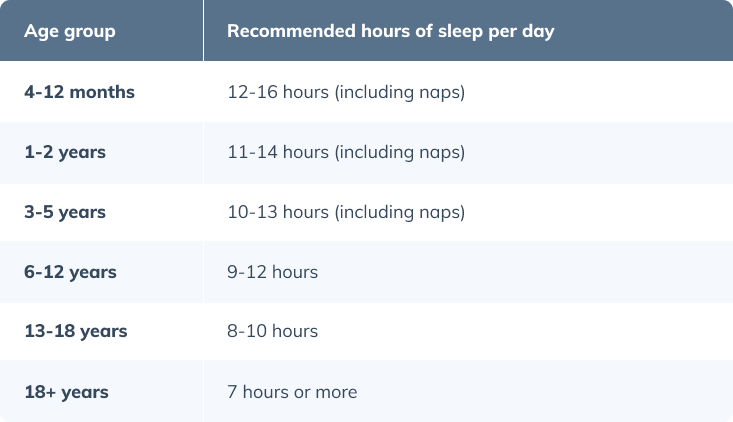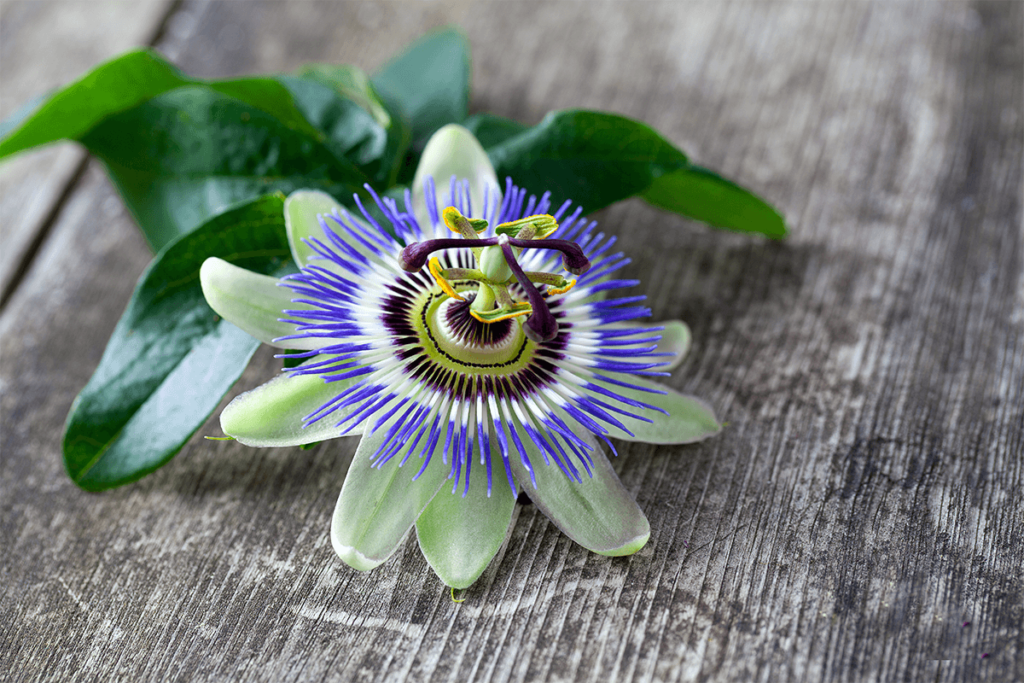According to the Centers for Disease Control and Prevention (CDC), approximately 35% of adults sleep less than the recommended seven hours per night. (6) Sleep is commonly considered a pillar of good health, and sleep deprivation may be associated with chronic health conditions, including cardiovascular disease, depression, and diabetes. (6)
Improving your sleep health can involve various lifestyle practices, known as sleep hygiene, and certain dietary supplements. This article will discuss our best sleep hygiene tips, sleep hygiene checklist, and supplement ingredients to support sleep quality.

How does sleep affect your health?
Sleep is essential to good health since it’s during this time when the body repairs and regenerates itself. Sleep also enhances the immune system’s defenses and is required for memory consolidation and learning. (15)
The health effects of sleep deprivation are serious. Compared to individuals who sleep over seven hours per day, those who sleep less than seven hours per day have an increased risk of developing a number of health conditions, including:
- Arthritis
- Asthma
- Cancer
- Cardiovascular events and diseases (e.g., high blood pressure, chronic obstructive pulmonary disease, coronary heart disease, heart attack, stroke)
- Chronic kidney disease
- Depression
- Diabetes (6)
Treat, prescribe, and dispense supplements to support a good nights sleep

How much sleep do you need?
The following table summarizes sleep recommendations by population from the American Academy of Sleep Medicine and the Sleep Research Society.

Sleep hygiene checklist for a better night’s sleep
Sleep deprivation can occur as a result of several factors, including poor sleep hygiene and health conditions such as insomnia, sleep apnea, mood disturbances, and restless leg syndrome. Work with your integrative healthcare practitioner to address which contributing factors could be affecting your sleep. (10) Improve your sleep with the following tips.
There are a variety of practices that anyone can implement to improve sleep quality and duration, collectively referred to as sleep hygiene. We outline the best evidence-based sleep hygiene tips below.
1. Stay consistent
Research has found that sleep continuity and duration are negatively impacted by shifts in sleep patterns, such as shift work or jet lag. Overall, irregular sleep and wake times can disrupt your circadian rhythm, the daily patterns of sleep and wakefulness in your body. (14) Aim to sleep and wake up at the same time every day, or as close as possible, including on weekends.
Did you know? Varying sleep times between working days and days off are referred to as “social jet lag.” Social jet lag may contribute to stress and impair sleep quality. (29)
2. Exercise regularly
Exercise may be one of the best sleep hygiene activities. Engaging in regular physical activity for over four weeks has been shown to improve sleep in both healthy individuals and individuals with sleep disorders. (14) Although some sleep recommendations suggest that exercise too close to bedtime may interfere with sleep, research in healthy individuals has found that nighttime exercise does not disrupt sleep. (7)(20)
Refer to Fullscript’s physical activity guidelines for exercise recommendations based on population.
3. Optimize your sleep environment
Your brain relies on the cycle of light and darkness throughout the day to regulate your body’s circadian rhythm. Light exposure at night can promote wakefulness, (15) so keep your bedroom dark by turning off overhead lights and consider using a sleep mask or blackout curtains.
Noise in your environment, such as music, traffic, or plumbing, may cause nighttime arousals. Studies have shown that using sound-masking and sound-reducing strategies can both improve sleep. (14) Try using white noise machine or app to mask sounds and earplugs to reduce the impact of sounds.
4. Maintain a bedtime routine and sleep schedule
During the first three phases of sleep, also known as non-rapid eye movement (NREM) sleep, skin temperature is generally higher and core body temperature is lower. Raising your skin temperature by having a bath or a footbath may reduce the length of time it takes you to fall asleep, known as sleep latency, as well as make you more comfortable before bed. (11)
Research has found that stress may result in physical and psychological responses that interfere with sleep. Engage in relaxing activities that can help you to wind down before bed, such as writing down your thoughts or concerns, and utilizing mindfulness techniques, both of which are techniques supported by evidence for reducing stress, arousal, and sleep complaints. (14)

5. Avoid or limit substance use
Several commonly-used substances have been associated with sleep disturbances. Alcohol, commonly used for its initial sedative effect, can suppress the rapid eye movement (REM) phase of sleep. (18) One review study found that substance use, including alcohol, caffeine, cannabis, and nicotine use, may result in sleep disruptions similar to those seen in certain medical conditions and sleep disorders. (9) Restrict or limit your use of these substances, particularly in the evening hours.
6. Minimize blue light exposure
Exposure to blue wavelengths of light, commonly emitted from LED screens, before bed may interrupt your body’s production of melatonin, a hormone that helps your body fall and stay asleep. (3) Research suggests that shifting to darkness as early as at 6:00 p.m. can help restore a regular day/night rhythm in certain individuals. (3) However, if this isn’t feasible, you can avoid using sources of blue light, such as computers, TVs, smartphones, and tablets, three hours before bed.
A randomized study compared sleep in individuals wearing blue light-blocking glasses to a control group wearing glasses blocking only ultraviolet light for three hours before bedtime. The study found that the blue light-blocking glasses group had a significant increase in sleep quality and mood compared to the control group. (3) Consider using blue light-blocking glasses to optimize your sleep.
Supplements for a good night’s sleep
In addition to these lifestyle habits, certain supplement ingredients have been researched for their beneficial effects on sleep. As always, we recommend that you consult your healthcare practitioner to ensure a supplement would be safe and beneficial for you.
1. GABA for sleep
GABA (gamma-aminobutyric acid) is a naturally occurring chemical compound produced in the brain that inhibits the excitability of neurons (brain cells). A controlled trial in elderly individuals found that GABA supplementation resulted in self-reported improved sleep onset and maintenance, as well as reduced nighttime urination and drowsiness in the morning. (31) Another study using electroencephalogram (EEG) monitors found that GABA supplementation reduced sleep latency by approximately five minutes, suggesting it can help individuals fall asleep more quickly. (32)
2. Lemon balm for sleep
The botanical herb Melissa officinalis L., commonly known as lemon balm, has long been used in European and Iranian traditional medicine. (28) Contemporary research suggests that lemon balm may reduce stress, improve mood, and have an anxiolytic (anxiety-reducing) effect. One pilot trial in stressed individuals with sleep disturbances found that supplementing a specific lemon balm extract over 15 days was associated with reduced anxiety symptoms and improved sleep. (4)
3. Magnesium for sleep
As an essential mineral, magnesium plays a role in a vast amount of the body’s daily functions. Magnesium is involved in regulating sleep and endocrine (hormonal) systems, and supplementation in older individuals over 60 shows that the mineral may help reverse some of the brain and endocrine changes to sleep that occur as we age. (12)
Research also suggests that magnesium may help reduce leg movements and muscle twitches that are associated with nighttime arousals. (13) You can increase your dietary intake of magnesium by consuming spinach, beans, nuts, avocado, and whole grains. (23)
4. Melatonin for sleep
Melatonin is a chemical naturally produced by the pineal gland of the brain and released in large amounts in response to darkness to control the circadian rhythm. Research has found that there is significant evidence for melatonin supplementation improving sleep latency. (1)(25) In addition to supplements, food-based melatonin has also been shown to improve sleep. Melatonin can be found naturally in the highest concentrations in fish, eggs, and nuts. (19)
5. Passionflower for sleep
Passionflower (Passiflora incarnata) is an herbal remedy with a history of use as a sedative and sleep aid. (21) Recent studies have shown that taking supplements or drinking passionflower tea may be associated with improvements to sleep disturbances seen in menopause, as well as improvements in sleep quality in a general population of adults. (16)(21)

6. Skullcap for sleep
The aerial parts of American skullcap (Scutellaria lateriflora), a member of the mint family, have been traditionally used as a nerve tonic and sedative. (2) A systematic review of controlled trials found evidence that skullcap may reduce symptoms of tension and anxiety. (27) Components of skullcap have been shown to bind with specific GABA receptors, which may result in an inhibition in neurotransmission (transmission of nerve impulses). However, researchers state that further studies are needed to investigate the medicinal properties of the plant. (2)
7. Valerian for sleep
Valerian (Valeriana officinalis), a herb that can grow white or pink flowers with a sweet scent, has been found to improve sleep disturbances in several studies. (26) Valerian may improve sleep by augmenting deep sleep and improving the negative effects of stress. (30) As with passionflower, valerian is commonly available as an herbal tea and in tea blends.
Did you know? Research has shown that valerian root is the most effective part of the herb to promote sleep. (30)
- Vitamin B6 for sleep
One of the eight B vitamins, vitamin B6 is naturally found in various animal proteins, chickpeas, potatoes, and bananas. (22) In the body, vitamin B6 plays a role in converting 5-hydroxytryptophan (5-HTP) to serotonin, a mood-enhancing neurotransmitter used to produce melatonin. (33) Deficiency in this vitamin may be associated with increased psychological distress and resulting sleep disturbance. (17)
8. Vitamin D for sleep
Low levels of fat-soluble vitamin D may also be associated with sleep issues. A meta-analysis found that individuals with vitamin D deficiency have a higher risk of sleepiness, poor sleep quality and duration, as well as an increased risk of sleep disorders. (8) Find vitamin D in various fish, eggs, liver, and fortified foods, (24) or supplement if recommended by your healthcare provider.
The bottom line
Consistent high-quality sleep and health go hand in hand. For better sleep, improve sleep hygiene by following the tips outlined in this article. If you have trouble falling asleep or if you’re interested in supplementation to improve your sleep, work with your integrative healthcare practitioner to develop a treatment plan that best addresses your individual needs.
- Attenburrow, M. E. J., Cowen, P. J., & Sharpley, A. L. (1996). Low dose melatonin improves sleep in healthy middle-aged subjects. Psychopharmacology, 126(2), 179–181.
- Awad, R., Arnason, J. T., Trudeau, V., Bergeron, C., Budzinski, J. W., Foster, B. C., & Merali, Z. (2003). Phytochemical and biological analysis of skullcap (Scutellaria lateriflora L.): A medicinal plant with anxiolytic properties. Phytomedicine, 10(8), 640–649.
- Burkhart, K., & Phelps, J. R. (2009). Amber lenses to block blue light and improve sleep: A randomized trial. Chronobiology International, 26(8), 1602–1612.
- Cases, J., Ibarra, A., Feuillère, N., Roller, M., & Sukkar, S. G. (2010). Pilot trial of Melissa officinalis L. leaf extract in the treatment of volunteers suffering from mild-to-moderate anxiety disorders and sleep disturbances. Mediterranean Journal of Nutrition and Metabolism, 4(3), 211–218.
- Centers for Disease Control & Prevention. (2017, March 2). How much sleep do I need? Retrieved from https://www.cdc.gov/sleep/data-research/facts-stats/adults-sleep-facts-and-stats.html
- Centers for Disease Control & Prevention. (2017, May 2). Data and statistics – Sleep and sleep disorders. Retrieved from https://www.cdc.gov/sleep/data-research/facts-stats/
- Flausino, N. H., Da Silva Prado, J. M., Queiroz, S. S., Tufik, S., & Mello, M. T. (2011). Physical exercise performed before bedtime improves the sleep pattern of healthy young good sleepers. Psychophysiology, 49(2), 186–192.
- Gao, Q., Kou, T., Zhuang, B., Ren, Y., Dong, X., & Wang, Q. (2018). The association between vitamin D deficiency and sleep disorders: A systematic review and meta-analysis. Nutrients, 10(10), 1395.
- Garcia, A. N., & Salloum, I. M. (2015). Polysomnographic sleep disturbances in nicotine, caffeine, alcohol, cocaine, opioid, and cannabis use: A focused review. The American Journal on Addictions, 24(7), 590–598.
- Hanson, J. A., & Huecker, M. R. (2019). Sleep deprivation. In StatPearls . Retrieved from https://www.ncbi.nlm.nih.gov/books/NBK547676/
- Harding, E. C., Yu, X., Miao, A., Andrews, N., Ma, Y., Ye, Z., … Franks, N. P. (2018). A neuronal hub binding sleep initiation and body cooling in response to a warm external stimulus. Current Biology, 28(14), 2263-2273.e4.
- Held, K., Antonijevic, I. A., Künzel, H., Uhr, M., Wetter, T. C., Golly, I. C., … Murck, H. (2002). Oral Mg2+ supplementation reverses age-related neuroendocrine and sleep EEG changes in humans. Pharmacopsychiatry, 35(4), 135–143.
- Hornyak, M., Voderholzer, U., Hohagen, F., Berger, M., & Riemann, D. (1998). Magnesium therapy for periodic leg movements-related insomnia and restless legs syndrome: An open pilot study. Sleep, 21(5), 501–505.
- Irish, L. A., Kline, C. E., Gunn, H. E., Buysse, D. J., & Hall, M. H. (2015). The role of sleep hygiene in promoting public health: A review of empirical evidence. Sleep Medicine Reviews, 22, 23–36.
- Jawabri, K. H., & Raja, A. (2019). Physiology, sleep patterns. In StatPearls . Retrieved from https://www.ncbi.nlm.nih.gov/books/NBK551680/
- Kim, M., Lim, H.-S., Lee, H.-H., & Kim, T.-H. (2017). Role Identification of Passiflora Incarnata Linnaeus: A mini review. Journal of Menopausal Medicine, 23(3), 156–159.
- Lichstein, K. L., Payne, K. L., Soeffing, J. P., Heith Durrence, H., Taylor, D. J., Riedel, B. W., & Bush, A. J. (2007). Vitamins and sleep: An exploratory study. Sleep Medicine, 9(1), 27–32.
- Mahfoud, Y., Talih, F., Streem, D., & Budur, K. (2009). Sleep disorders in substance abusers: How common are they? Psychiatry (Edgmont), 6(9), 38–42.
- Meng, X., Li, Y., Li, S., Zhou, Y., Gan, R.-Y., Xu, D.-P., & Li, H.-B. (2017). Dietary sources and bioactivities of melatonin. Nutrients, 9(4), 367.
- Myllymäki, T., Kyröläinen, H., Savolainen, K., Hokka, L., Jakonen, R., Juuti, T., … Rusko, H. (2011). Effects of vigorous late-night exercise on sleep quality and cardiac autonomic activity. Journal of Sleep Research, 20(1 pt 2), 146–153.
- Ngan, A., & Conduit, R. (2011). A double-blind, placebo-controlled investigation of the effects of Passiflora incarnata (passionflower) herbal tea on subjective sleep quality. Phytotherapy Research, 25(8), 1153–1159.
- NIH Office of Dietary Supplements. (2020a, February 24). Vitamin B6. Retrieved from https://ods.od.nih.gov/factsheets/VitaminB6-HealthProfessional/
- NIH Office of Dietary Supplements. (2020b, March 21). Magnesium. Retrieved from https://ods.od.nih.gov/factsheets/Magnesium-HealthProfessional/
- NIH Office of Dietary Supplements. (2020c, March 24). Vitamin D. Retrieved from https://ods.od.nih.gov/factsheets/VitaminD-HealthProfessional/
- Posadzki, P. P., Bajpai, R., Kyaw, B. M., Roberts, N. J., Brzezinski, A., Christopoulos, G. I., … Car, J. (2018). Melatonin and health: An umbrella review of health outcomes and biological mechanisms of action. BMC Medicine, 16(1), 18.
- Salter, S., & Brownie, S. (2010). Treating primary insomnia – The efficacy of valerian and hops. Australian Family Physician, 39(6), 433–437.
- Sarris, J., Panossian, A., Schweitzer, I., Stough, C., & Scholey, A. (2011). Herbal medicine for depression, anxiety and insomnia: A review of psychopharmacology and clinical evidence. European Neuropsychopharmacology, 21(12), 841–860.
- Shakeri, A., Sahebkar, A., & Javadi, B. (2016). Melissa officinalis L. – A review of its traditional uses, phytochemistry and pharmacology. Journal of Ethnopharmacology, 188, 204–228.
- Sűdy, Á. R., Ella, K., Bódizs, R., & Káldi, K. (2019). Association of social jetlag with sleep quality and autonomic cardiac control during sleep in young healthy men. Frontiers in Neuroscience, 13, 950.
- Wheatley, D. (2005). Medicinal plants for insomnia: A review of their pharmacology, efficacy and tolerability. Journal of Psychopharmacology, 19(4), 414–421.
- Yamatsu, A. (2013). Beneficial action of GABA on sleep and frequent night urination in the elderly. Japanese Pharmacology & Therapy, 41(10), 985–988.
- Yamatsu, Atsushi, Yamashita, Y., Maru, I., Yang, J., Tatsuzaki, J., & Kim, M. (2015). The improvement of sleep by oral intake of GABA and Apocynum venetum leaf extract. Journal of Nutritional Science and Vitaminology, 61(2), 182–187.
- Zeng, Y., Yang, J., Du, J., Pu, X., Yang, X., Yang, S., & Yang, T. (2015). Strategies of functional foods promote sleep in human being. Current Signal Transduction Therapy, 9(3), 148–155.
